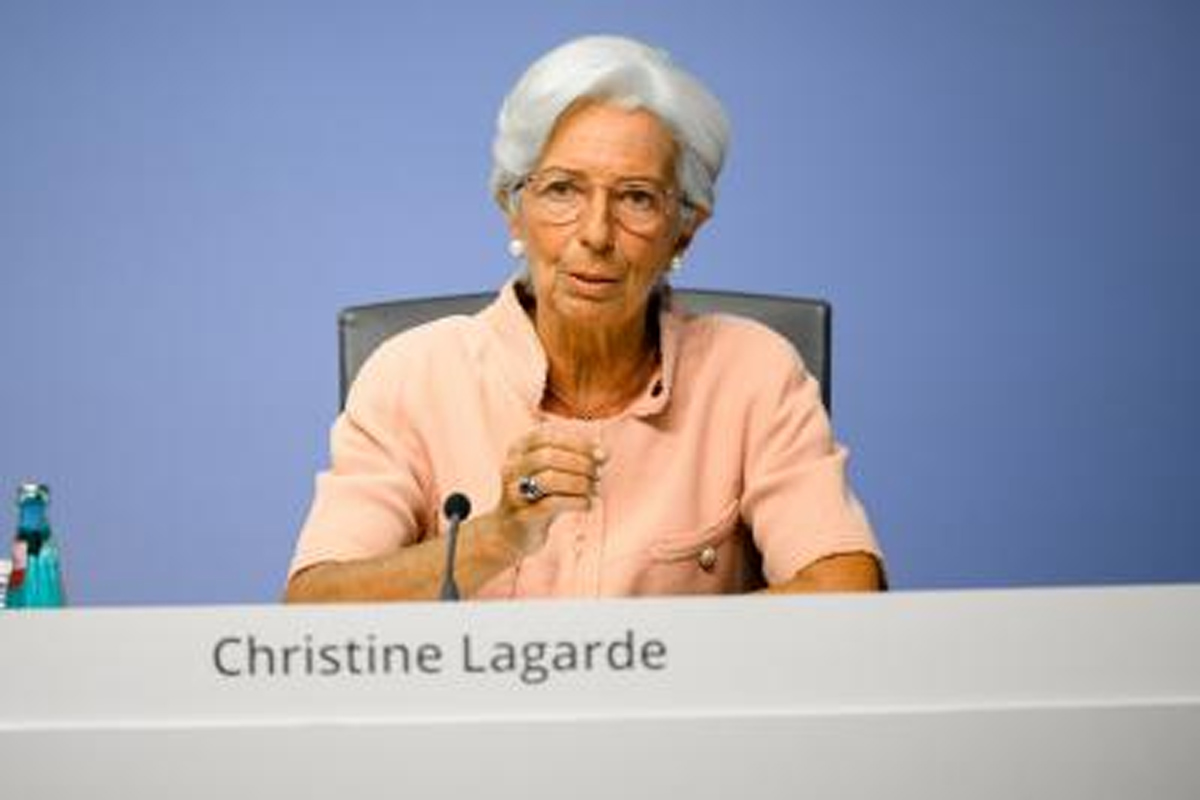The European Central Bank (ECB) decided to leave its key interest rates unchanged and set a “moderately lower pace” for the Covid-19 pandemic-related bond buying.
“Based on a joint assessment of financing conditions and the inflation outlook, the Governing Council judges that favourable financing conditions can be maintained with a moderately lower pace of net asset purchases under the pandemic emergency purchase program (PPEP) than in the previous two quarters,” the ECB said in a statement on Thursday.
Advertisement
Earlier this year, after its March and June meetings, the ECB decided that purchases under the PEPP in the second and third quarters would be conducted at a significantly higher pace than during the first months of the year, reports Xinhua news agency.
Thursday’s announcement came as eurozone inflation surged to three per cent in August, the highest in ten years, according to a flash estimate published last week.
The ECB also left other policy measures largely unchanged.
Eurozone key interest rates will remain at record low levels, with the base interest rate, marginal lending rate and deposit rate unchanged at 0.00 per cent, 0.25 per cent and minus 0.50 per cent, respectively.
The PEPP, first rolled out in March last year to cushion the impact from the pandemic and expanded twice thereafter, has a total envelope of 1.85 trillion euros ($2 trillion) and is set to run until at least the end of March 2022.
The 3 per cent rise in eurozone headline inflation in August, together with a jump in core inflation to 1.6 per cent, had largely exceeded analysts’ expectations.
At a press conference on Thursday, ECB President Christine Lagarde reiterated that the surge in inflation is expected to be temporary.
“Summing up, the euro area economy is clearly rebounding. However, the speed of the recovery continues to depend on the course of the pandemic and progress with vaccinations. The current rise in inflation is expected to be largely temporary and underlying price pressures will build up only gradually,” Lagarde told reporters.
According to the ECB, the inflation upswing mainly reflects the strong increase in oil prices since around the middle of last year; the reversal of the temporary value-added tax (VAT) reduction in Germany; delayed summer sales in 2020; and cost pressures due to supply chain issues — all of which should ease or fall out of the year-on-year inflation calculation over the course of 2022.
If supply bottlenecks last longer and feed through into higher than anticipated wage rises, price pressures could be more persistent, Lagarde said.
The ECB’s latest projections expect annual inflation in the eurozone to be 2.2 per cent in 2021, 1.7 per cent in 2022 and 1.5 per cent in 2023, all revised upwards compared with the forecasts three months ago.
Lagarde also said policymakers believe that the eurozone’s growth will be back to the 2019 pre-pandemic level at the end of this year, which is two quarters earlier than initially anticipated.
The latest ECB staff projections foresee the eurozone’s real GDP to grow 5 per cent this year, 4.6 per cent in 2022 and 2.1 per cent in 2023.
Dutch bank ABN Amro said there was a little relief in the market that Thursday’s move is a slowdown rather than a taper.
It expects the PEPP to end in March 2022.
However, policy rates are likely to remain on hold through 2024, given the ECB’s symmetric 2 per cent inflation target and subdued inflation outlook in the medium term, according to the bank.











